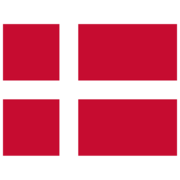Want to see the news for this country?
Subscribe now!Fiscal Law timeline
The fiscalization requirements in Denmark do not mandate any hardware or technical solutions that have to be implemented. Instead, software functionalities are the prime area of Danish fiscalization regulation. Signing transactions and storing transaction data are at the core of the system.
Denmark
Denmark introduced its first fiscal requirements in 2019. Mandatory POS functionalities have to be implemented by law, while the specifics of the digital signature, electronic journal, and SAF-T are given in the technical documents provided by the Danish Tax Authority.
Type of fiscalization: Software
Latest news for Denmark
See moreTLv6 Implementation Marks Significant Shift in EU’s Trust List Format
A new EU Trust List format, TLv6, will officially replace TLv5 in May 2025 as part of the updated eIDAS Regulation (EU 2024/1183). It introduces key technical changes like a new URI field, updated signature format, and optional phone number support. Organizations must update their systems to avoid signature validation failures and service disruptions, as TLv5 will no longer be valid once TLv6 take... Read more

TLv6 Implementation Marks Significant Sh...
A new EU Trust List format, TLv6, will officially replace TLv5 in May 2025 as part of the updated eI... Read more


Denmark: The Latest Postponement Release Date of OIOUBL 3.0
 Denmark
Author: Nikola Novković
Denmark
Author: Nikola Novković
Denmark has postponed the final release of its updated e-invoicing standard, OIOUBL 3.0, from April 10 to October 2025, due to numerous inquiries and the need for further analysis. The update aims to improve electronic communication between businesses and public-sector entities while aligning with national and EU standards. The Danish Business Authority will announce next steps once the ongoing ev... Read more

Denmark: The Latest Postponement Release...
 Denmark
08.04.2025.
08:31H
Author: Nikola Novković
Denmark
08.04.2025.
08:31H
Author: Nikola Novković
Denmark has postponed the final release of its updated e-invoicing standard, OIOUBL 3.0, from April... Read more


General overview regarding the Denmark 2025 e-invoicing system and NemHandel platform
 Denmark
Author: Nikola Novković
Denmark
Author: Nikola Novković
Denmark mandates that all B2G e-invoices be exchanged via the NemHandel platform following the OIOUBL standard, ensuring compliance with the European standard (EN-16931) since April 2019. Additionally, the Danish Bookkeeping Act requires all businesses to adopt Digital Bookkeeping Systems (DBS) capable of handling e-invoices, with a final compliance deadline of January 1, 2026. When it comes to B2... Read more

General overview regarding the Denmark 2...
 Denmark
26.03.2025.
08:06H
Author: Nikola Novković
Denmark
26.03.2025.
08:06H
Author: Nikola Novković
Denmark mandates that all B2G e-invoices be exchanged via the NemHandel platform following the OIOUB... Read more


The EU adopted the VAT in the Digital Age (ViDA) package on March 11, 2025, introducing major changes to the VAT system starting January 1, 2027. Key reforms include mandatory digital VAT reporting by 2030, new VAT collection rules for online platforms, and expanded One-Stop Shop (OSS) registration to simplify cross-border compliance. Additional measures, such as mandatory e-invoicing, phasing out... Read more

VIDA regulation adopted—what does that m...
The EU adopted the VAT in the Digital Age (ViDA) package on March 11, 2025, introducing major change... Read more


Danish Business Authority Releases Updated Peppol Schematron Package 1.2.11
 Denmark
Author: Ivana Picajkić
Denmark
Author: Ivana Picajkić
The Danish Business Authority released Peppol BIS3-Other package version 1.2.11 on February 12, 2025, incorporating Peppol's hotfix for schematron version 3.0.14, which became mandatory on February 17, 2025. The update requires users to also adopt Danish CIUS package version 1.14.0, which includes Peppol schematrons updated to version 3.0.18. Read more

Danish Business Authority Releases Updat...
 Denmark
21.02.2025.
09:05H
Author: Ivana Picajkić
Denmark
21.02.2025.
09:05H
Author: Ivana Picajkić
The Danish Business Authority released Peppol BIS3-Other package version 1.2.11 on February 12, 2025... Read more


Denmark Updates OIOUBL E-Invoicing Standard: New Schematron Version 1.15 RC Released for Testing
 Denmark
Author: Ivana Picajkić
Denmark
Author: Ivana Picajkić
The Danish Business Authority has released OIOUBL Schematron 1.15 (RC) for OIOUBL 2.1, introducing stricter VAT validation rules to improve e-invoicing accuracy. Changes include mandatory 0% VAT rates for Zero-Rated items, stricter VAT amount calculations at the line level, and enhanced VAT summary validation for entire invoices. . Read more

Denmark Updates OIOUBL E-Invoicing Stand...
 Denmark
14.02.2025.
09:03H
Author: Ivana Picajkić
Denmark
14.02.2025.
09:03H
Author: Ivana Picajkić
The Danish Business Authority has released OIOUBL Schematron 1.15 (RC) for OIOUBL 2.1, introducing s... Read more


Latest document for Denmark
See moreRecorded webinar: E-invoicing for Global Retailers
If you are struggling with complex e-invoicing implementations across multiple countries, and if you are concerned about mounting costs, potential delays, or compliance risks, our webinar will help you to learn how global retailers can streamline e-invoicing efficiently! With countries worldwide mandating e-invoicing, international retailers face unique challenges adapting to new regulations acros... Read more

Recorded webinar: E-invoicing for Global...
If you are struggling with complex e-invoicing implementations across multiple countries, and if you... Read more


Overview of fiscalization in European countries
This document contains an overview of the presence of fiscalization and its types in all European countries. Read more

Overview of fiscalization in European co...
This document contains an overview of the presence of fiscalization and its types in all European co... Read more


Digital Product Passport
Do you even know what DPP is? Digital Product Passports (DPP) are set to play a crucial role in the European Union’s commitment to a circular economy. The purpose of this document is to provide you with a necessary overview of the upcoming Digital Product Passport requirements set to be implemented by the European Union. Read more

Digital Product Passport
Do you even know what DPP is? Digital Product Passports (DPP) are set to play a crucial role in th... Read more


Recorded webinar: It’s time to grow together
In this discussion, we have introduced our new partner program and what is essential for international growth, while dealing with topics such as - Success factors for POS applications - What does globalization mean? - How to grow globally? Furthermore, we presented benefits for our partners. Last but not least, we presented our fiscal cloud architecture and its important features. Read more

In this discussion, we have introduced our new partner program and what is essential for internation... Read more


The purpose of this document is to provide an overview of the fiscalization requirements by comparing and contrasting the rules and regulations in Norway and Denmark. The document itself will include all relevant information from the most important laws that regulate this matter and provide insight into the similarities and differences between these two fiscal systems. The reason for comparing these two fiscal systems is that the Danish system is based on the Norwegian fiscal system with few differences, which will be highlighted in the text. Read more

Fiscal law comparison between Norway and...


Legal Q&A – Denmark
 Denmark
Author: Nikola Novković
Denmark
Author: Nikola Novković
Q&A is a crucial document containing answers to common questions when it comes to fiscalization. Its content spares you the precious time you would invest in researching this specific field. This document, prepared by our experienced fiscal experts, unveils answers to questions such as: What is the type of fiscalization in the country? When did it start, and what was the timeline? What does the history of changes look like? What is the law? What are the other regulations? Where does fiscal law need to be implemented? These examples concern only some general questions, but there are also chapters describing journals, communication with authorities, taxes, VAT, etc., and therefore questions and answers concerning these topics. Read more

Legal Q&A – Denmark
 Denmark
06.03.2025.
15:18H
Author: Nikola Novković
Denmark
06.03.2025.
15:18H
Author: Nikola Novković
Q&A is a crucial document containing answers to common questions when it comes to fiscalization. Its... Read more



